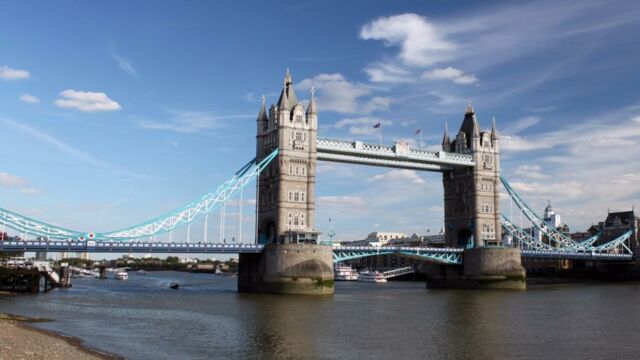Historically, rivers often defined the location of the cities and gave their population freshwater and food necessary for survival. Nowadays, it is easy to forget that rivers running through megapolises are not only for sightseeing cruises.They are fascinating underwater worlds full of life and inhabited by millions of creatures. You will be amazed at these wild animals who found a home and thrived in the previously ‘biologically dead’ London’s River Thames.
Discover our latest podcast
Don’t panic, but … there are venomous sharks in the Thames

According to the Zoological Society of London (ZSL), the Thames is home to a breed of venomousshark known as the Spiny Dogfish or Spurdog. These sea beasts look terrifying with their pointed snouts, large eyes, streamlined bodies and a greyish-brown colour. The Spurdogs' venom can cause extreme discomfort and swell in humans.
Though it might not be much comfort, you can also find non-venomous Starry Smoothhounds and Tope sharks in the Thames.
Watch out for European Eels when you take a swim
Mysterious European eels are snake-like migratory fish with elongated bodies and slimy skin. These fascinating creatures are quite the travellers! Born in the Sargasso Sea, they swim over 5,000 km to European estuaries, such as the Thames. It is one of the world's greatest migrations! Once common, European eels are now a critically endangered species.
Spot a Seahorse next time you take a dive
Seahorses in the Thames - who'd have thought it? Two species of seahorse – the long- and short-snouted – have made their home in the River Thames. They don't tend to travel very far as they're pretty poor swimmers, which suggests they're sticking around in our iconic river! pic.twitter.com/AW1oBh3mTs
— London Wildlife Trust (@WildLondon) August 17, 2021
Did you know that it's not the female, but the male seahorses who carry the babies and give birth? Luckily, the remarkable creatures have been spotted in and around the Thames. The fact that seahorses have taken up residence in the river shows how drastically the water quality has improved over the decades.
Get a pearl when you find a Wild Native Oyster in the Thames
Wild native oyster beds are probably one of the most endangered marine habitats in Europe. Their populations in the UK have been reduced by over 95%. Luckily, they still live in the outer Thames estuary.
Although oysters are most famous for their gorgeous pearls, you might be disappointed with what you get in the Thames. The local species' pearls are dull and have no financial value!
Wave hello next time you see a seal
A whopping 4000 seals live in the Thames and its estuary. The main species are harbour and grey seals, often seen on the sandbanks and coastal creeks. They feed on fish and crustaceans and are considered top predators in the country. Grey seals travel as far as 100km to look for food. No wonder there are sightings of them following the fish as far up as central London.
The Thames was incredibly polluted and declared ‘biologically dead’ 60 years ago. Today the river and its banks are home to over 125 species of fish and more than 92 species of birds, including the grey heron. Thames wildlife gets more diverse day by day. The frequent sightings of animals not seen before, such as otters or even whales, mean that the improvements in the city's infrastructure and conservation programs are a success.
ZSL (Zoological Society of London) is an international charity devoted to the worldwide conservation of animals and their habitats. Head to their website to learn more about their work.
Read more:
⋙ Great white shark poops on a group of divers (VIDEO)
⋙ A farmer left shocked after spotting a baby seal in a wheat crop kilometres away from ocean















